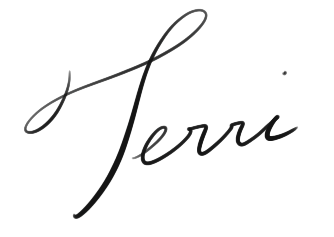Ariel K. Moniz (she/her) is a queer Black poetess and…
As 2022 draws to a close, we wanted to take a moment to reflect on the year behind us. This month marks a year that The Hyacinth Review has been active, and we are just as excited about this project now as we were when we began. December 21st marked the official one year anniversary of our launch date, and we are so grateful for the opportunity to be hosting our fourth open call during this wonderful milestone.
By the end of this year we will have published 296 pieces of creative work. We are eternally grateful for those who have supported us, submitted their work to us, and who have made this magazine what we dreamed of– a place for creatives to come together, share their work, and imbue the world with their passions.
We have had the opportunity to read, view, and listen to creative pieces that have both inspired and encouraged us to continue expanding this magazine and to pursue our mission of facilitating a love for the humanities.
As both of us are goal-driven people with an affinity for the fresh slate magic of beginning a new year, we have set a list of goals for ourselves regarding how we hope to see this magazine grow in the coming year. We are sharing them here with you to give you a glimpse of what you can expect in this coming year as well as to keep us accountable throughout 2023.
- We are going to maintain a consistent presence on all of our social media platforms. You can find us on Twitter, Instagram, Facebook, Tumblr, Pinterest, and Discord. We do our best to add a little flavor to each platform that sets it apart from the others, and want people to find us on any site that they might frequent.
- We want to expand our newsletter and offer more opportunities as a thank you for signing up, including getting you the most recent updates and allowing you to participate in some of the workings of the magazine.
- We want to continue to find new ways to generate income for the magazine, to pay for the expenses of running the site as well as to offer future opportunities of payment for our contributors.
- We want to continue to connect with creatives and other publications to build additional opportunities in our communities to access free resources and foster a love for creativity.
We currently have some other ideas in the works, and those signed up for our newsletter will be the first to become informed about any new projects we begin or opportunities we may offer.
If you’re looking to set resolutions or goals for this new year, we have a couple of pieces of advice for you. As two passionate, planner-having, goal-setters ourselves, this time of year is filled with anticipation. It seems that many people have turned away from making resolutions for the new year because they feel cliched and unlikely to stick. We would like to share how we have circumnavigated this in our own goal setting and what makes us excited to set our resolutions for each new year.
- Set goals that are sustainable. This means that you want to think about the reality of your life and create goals that fit reasonably within it. For example, if you want to paint more you might be encouraged to set a goal like “Paint for an hour every day.”
While this sounds like a wonderful use of time, does your life as it is include an hour or more of free time per day? Do you have difficulties sticking to a set schedule due to responsibilities, a disability, or another ongoing factor?
Goals should be set to make your life feel more fulfilling and bring you closer to the person you long to be. If a goal you set is making you feel stressed or confined, it likely will not be sustainable.
- Focus on the things you have control over as opposed to things that you don’t. For example, if you set a goal like “Get five pieces published this year”, you are putting that goal in the hands of editors, readers, and chance. You may very well get that many pieces (or more!) published, but if you don’t, you’re likely to feel disappointed or judge your work more harshly.
We suggest setting goals like the following: “I will submit my work to a minimum of ten publications this year.” This way, your goal is focused on your actions and not the outcome.
- Look at your goals as guidelines, not rules. Many people seem to think that you can “fail” at your resolutions, that if you don’t continue with them throughout the year and beyond that you did something wrong. We suggest looking at the resolutions you set as guidelines and markers of the things that are important to you.
Perhaps you want to start living a vegan lifestyle but you find it difficult, expensive, or otherwise inaccessible to you. Did you spend a week, a month, learning about, supporting, and discussing veganism and its benefits? Engaging with your goals and trying something new that means something to you is not a “failure”, even if it is something you find yourself unable to continue indefinitely.
If not being able to continue with this goal upsets you, try breaking it down to the “why”. Why did you want to be vegan? Was it for the environmental benefits? Then perhaps you might consider looking into other methods of sustainability and environmental consciousness, like recycling more often, trying a zero waste lifestyle, or simply eating less meat and more locally grown plant matter.
- Make goals that really matter to you. Many people put the same kind of general goals on their list of resolutions, because they feel like these are things that society says they need to improve on. Losing weight, making more money, buying a house, or starting a family– these are all things that frequent resolution lists.
Of course, these may very well be the things that feel most important to the person setting these resolutions, and we are in no way saying that you cannot set these goals for yourself. What we would encourage you to do is ask yourself what you really want from life, who you truly want to be, and what actionable steps might bring you to feeling the most fulfilled.
For example, maybe you do want to accomplish financial stability in this new year. Try being specific and intentional with this resolution. An example might be “I will start my small business this year [so I can make a living from my artwork]”. This goal is specific, intentional, and encouraging.
We hope that some of these tips may help shift your views around goal setting for this new year and encourage you to make some of your own! We are excited to begin undertaking our own goals and make this magazine the best that it can be.
We are wishing you all a festive holiday season and a glorious new year.


Ariel K. Moniz (she/her) is a queer Black poetess and Hawaii local currently living abroad. She is a co-founder of The Hyacinth Review, and serves as a poetry reader for The Lumiere Review as well as the social media manager for Liminal Transit Review. She is the winner of the 2016 Droste Poetry Award and a Best of the Net nominee. Her writing has found homes with Blood Bath Literary Zine, Sledgehammer Literary Journal, Black Cat Magazine, and Sunday Mornings at the River Press, among others. She holds a B.A in English from the University of Hawaii at Hilo, where she once served as the editor-in-chief of Kanilehua Art & Literary Magazine. You can find her on her website at kissoftheseventhstar.home.blog, on Twitter @kissthe7thstar, on Instagram @kiss.of.the.seventh.star, or staring out to sea.











